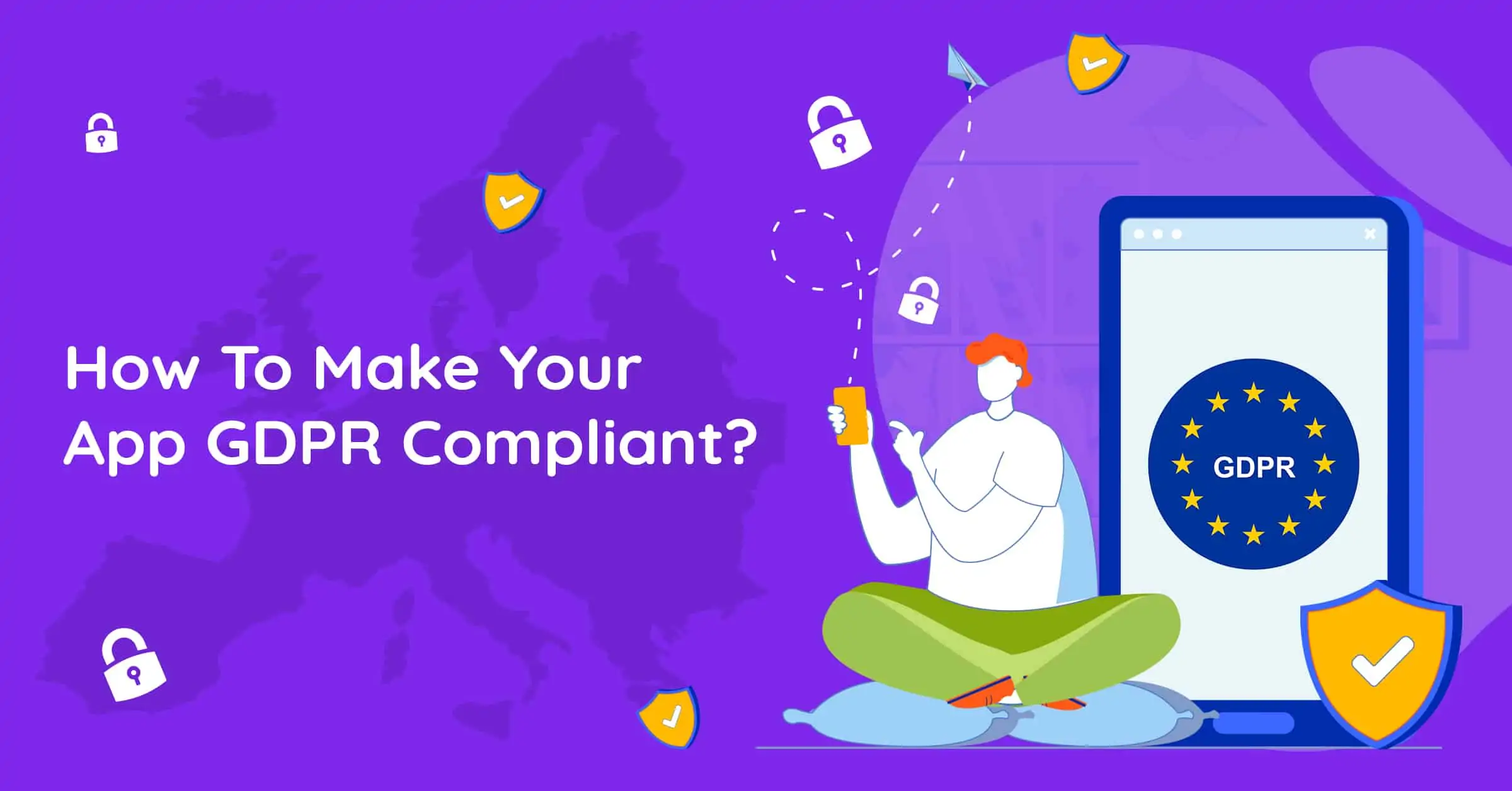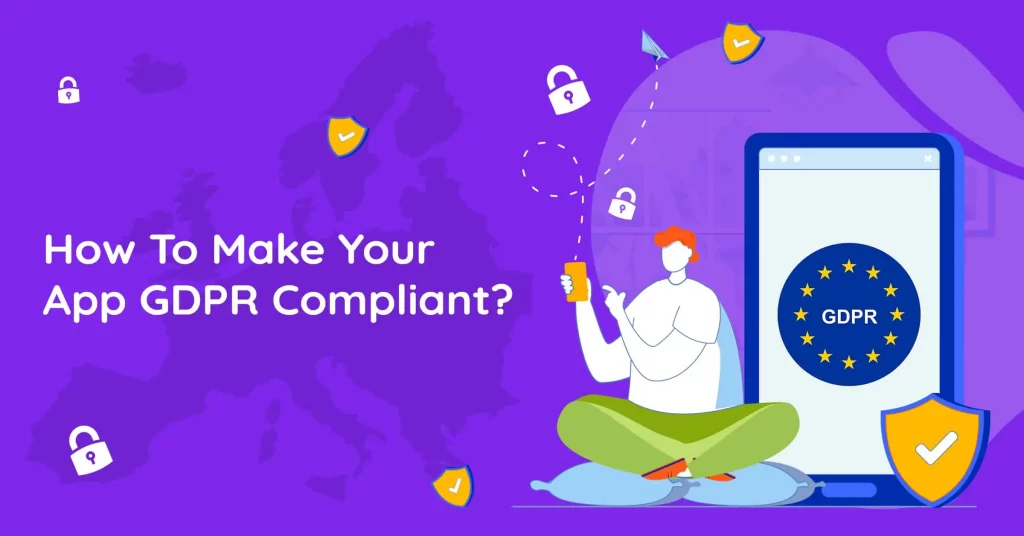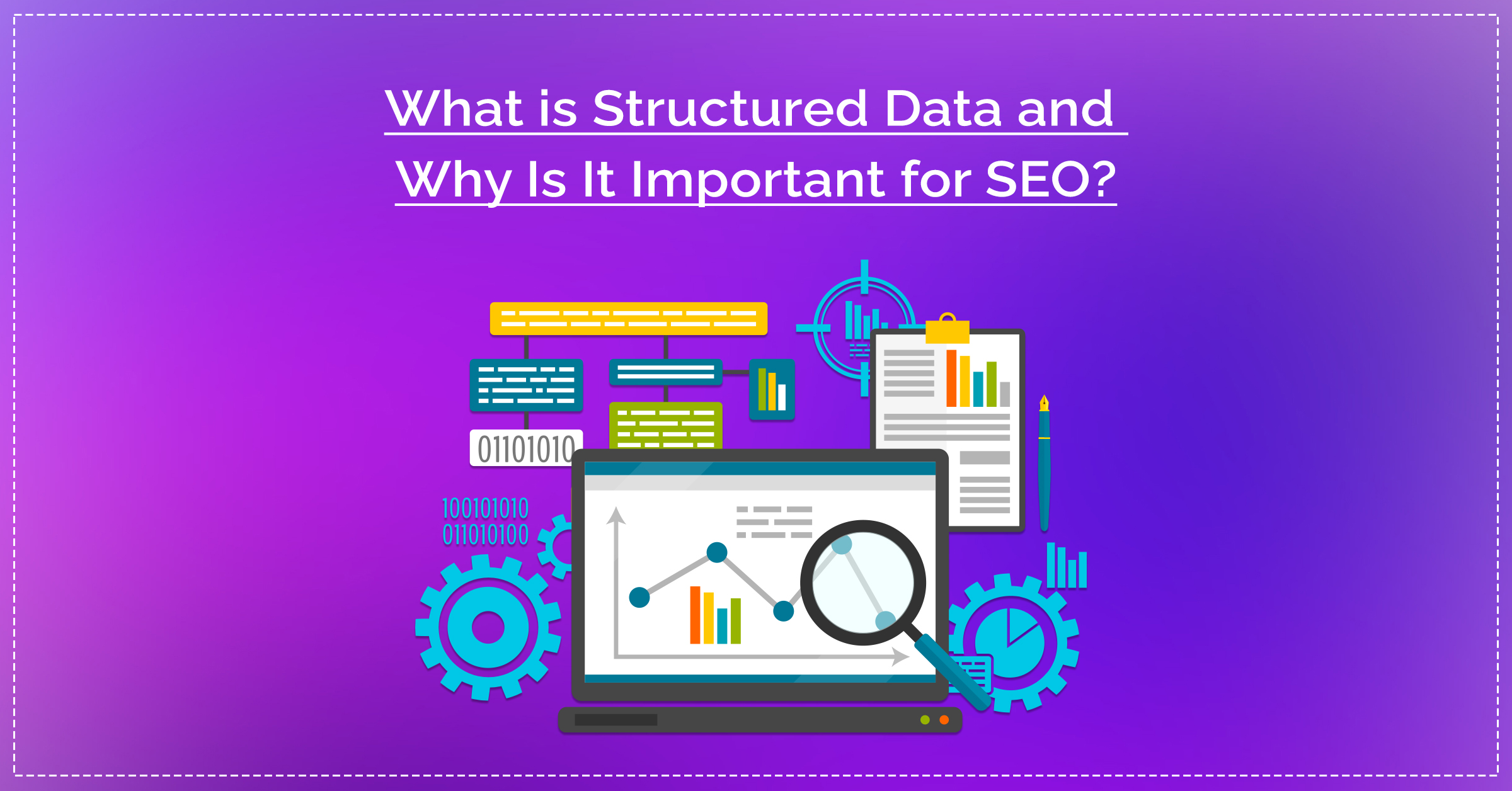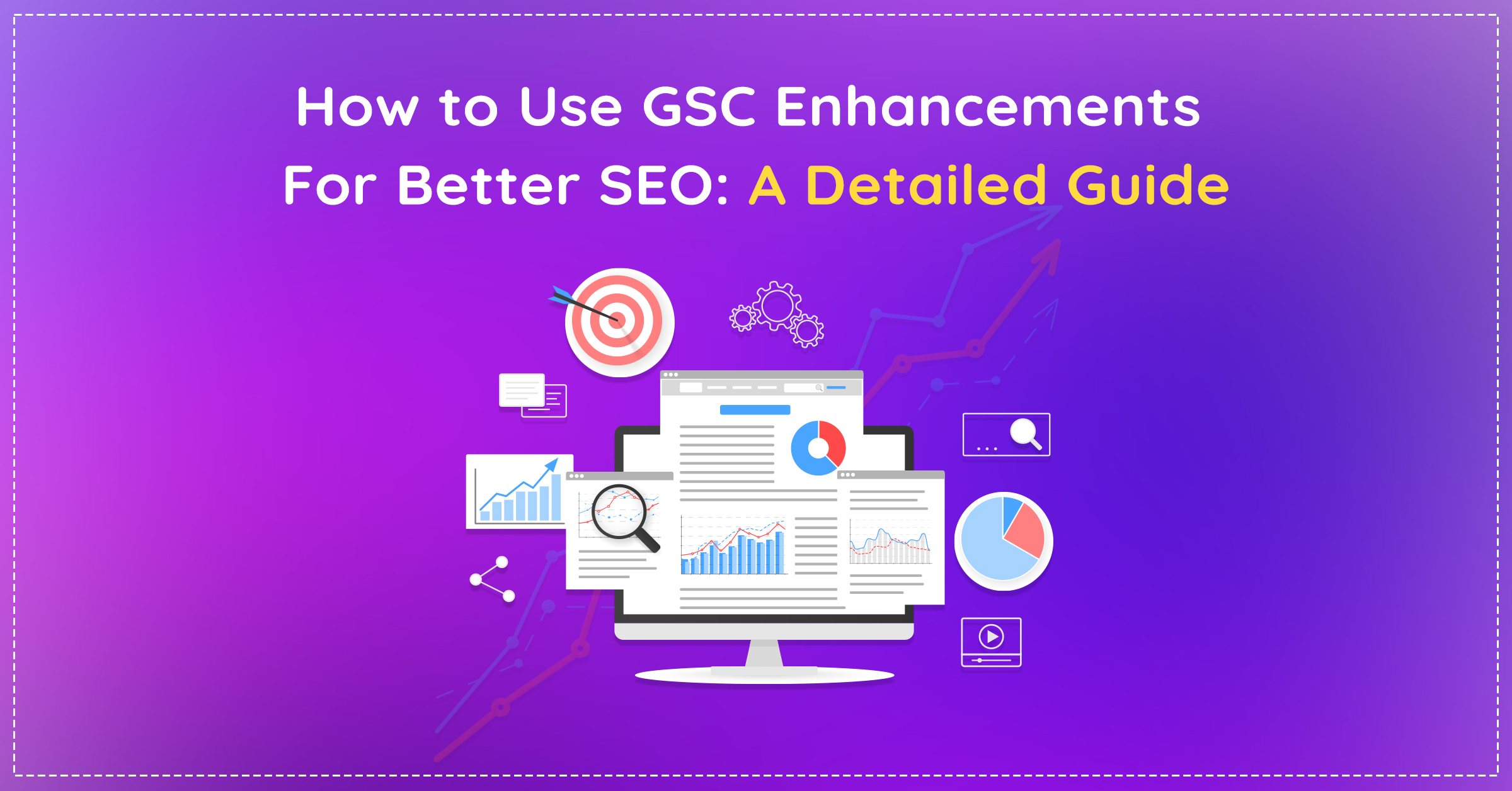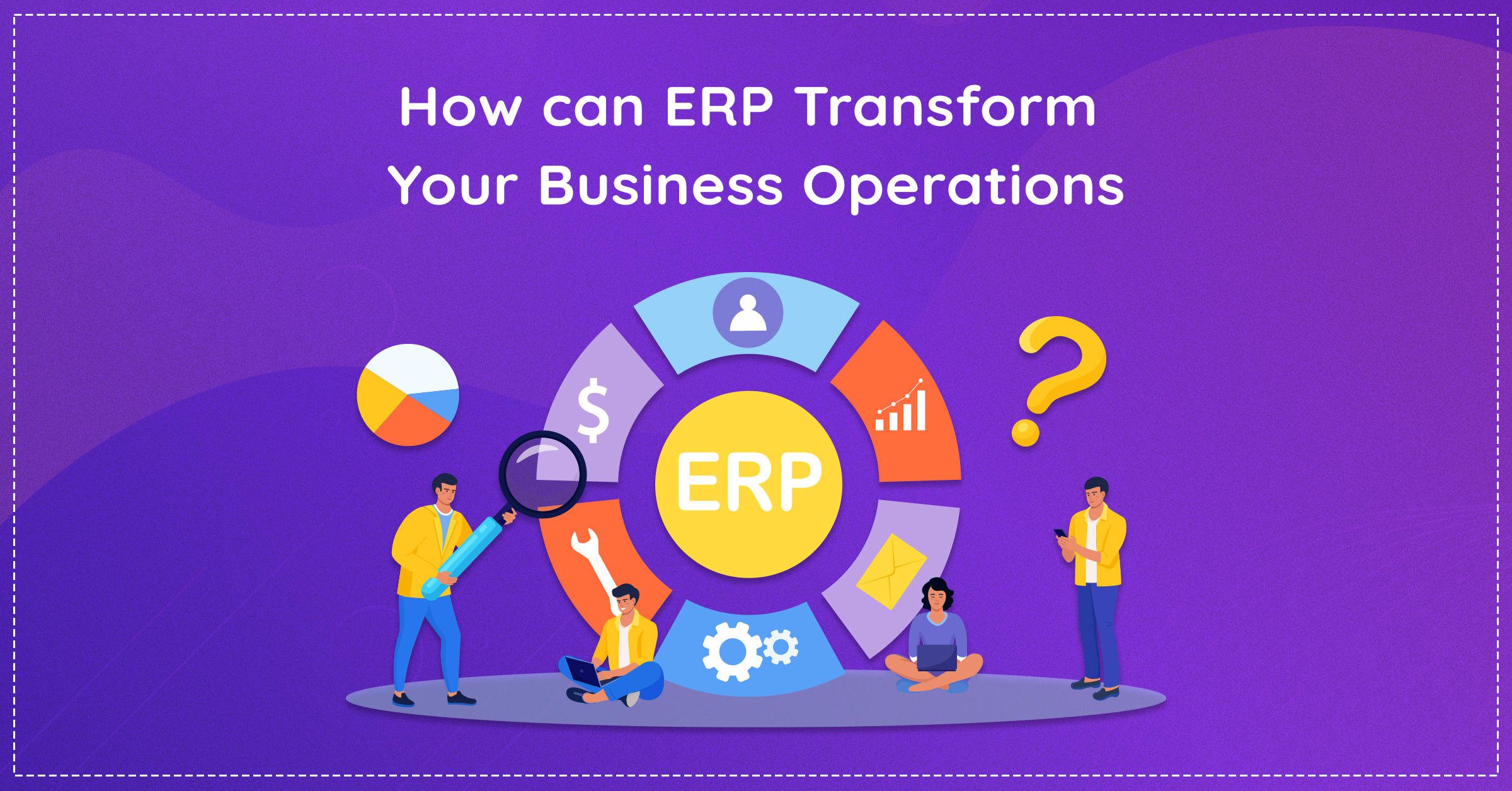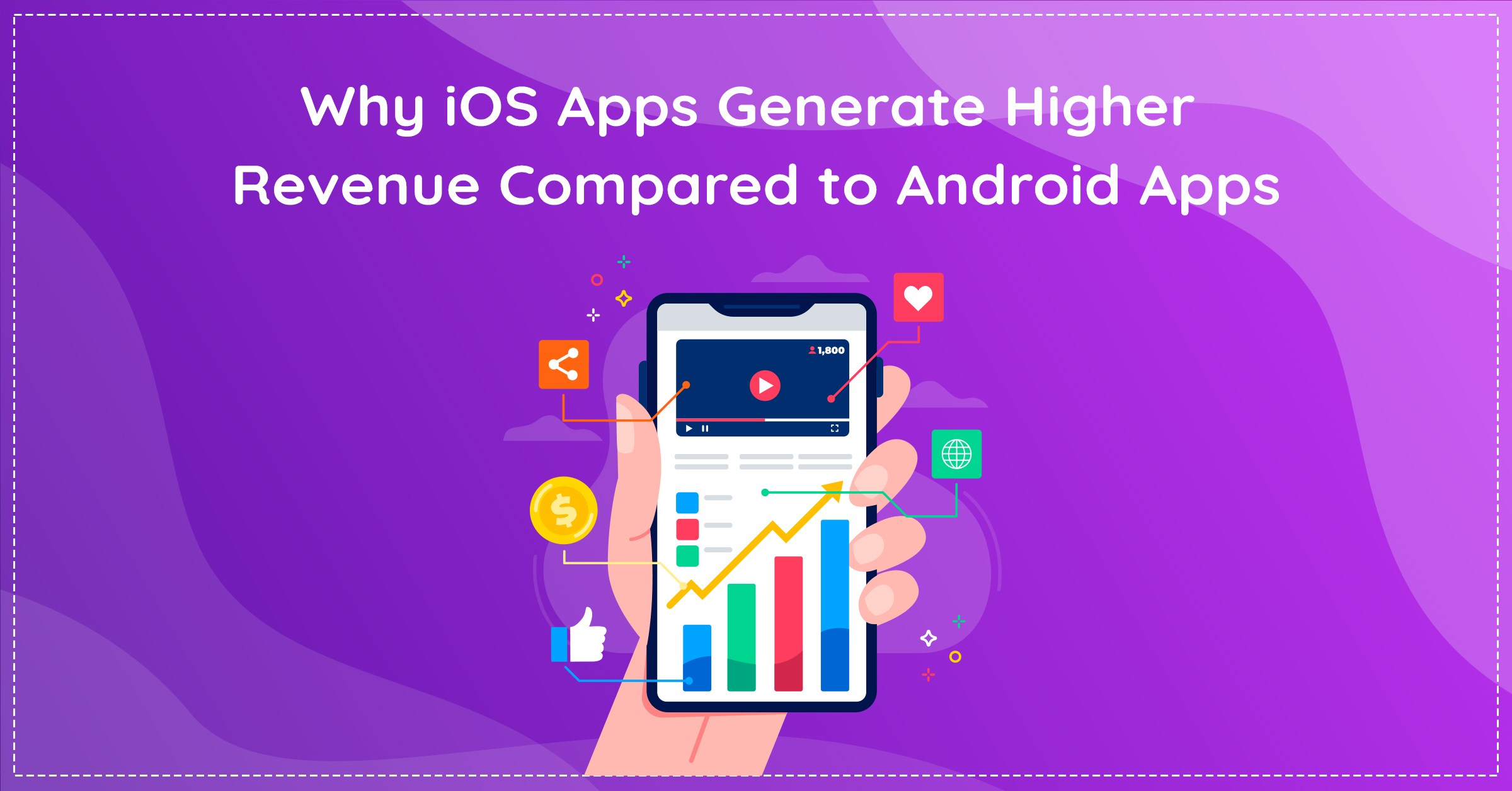In this blog, we explain what GDPR is and how you can make your app GDPR compliant.
The Internet has undoubtedly been a blessing for us. Today, we can connect, communicate, share our voices and opinions, and do a lot of things on the internet. However, there is another side of the coin too. In recent years, instances of data breaching, spyware, and such cyber crimes have been gaining pace.
To help the citizens protect their personal data on the internet, the EU enacted General Data Protection Regulation (GDPR).
If you’re a business or a citizen of the EU, this legislation is most likely to affect you. Read on to know more!
What is General Data Protection Regulation (GDPR)?

To make companies accountable for customers’ data storage/usage and to prevent cybercrimes, the EU enforced the General Data Protection Regulation (GDPR).
In other words, the GDPR is implemented to protect the personal data of EU citizens and to make users in charge of their data rather than the companies.
The General Data Protection Regulation was passed by the European Parliament in April 2016 and it’s been enforced since May 25, 2018. Since the GDPR replaced the previous Data Protection Directive, the companies must ensure they comply with the new rules and requirements of GDPR.
Before we dig deeper into the intricacies of GDPR, let’s see some of the basic yet important definitions used in GDPR. (For a comprehensive list of definitions, check out Article 4 of the regulation)
- Data Subject: It is a person whose data is being collected. It can be your web/app’s visitors and customers.
- Data Controller: Data controller has the authority to decide what, how, and when to collect customers’ data. Further, it determines the purpose of collecting and storing the data.
- Data Processor: These are organizations or third-party services entitled to process customers’ data on behalf of the data controller. Companies like Google Analytics and KISSMetrics can be examples of data processors as they plug into your website/app and host your customer’s data.
What Exactly Does GDPR State?
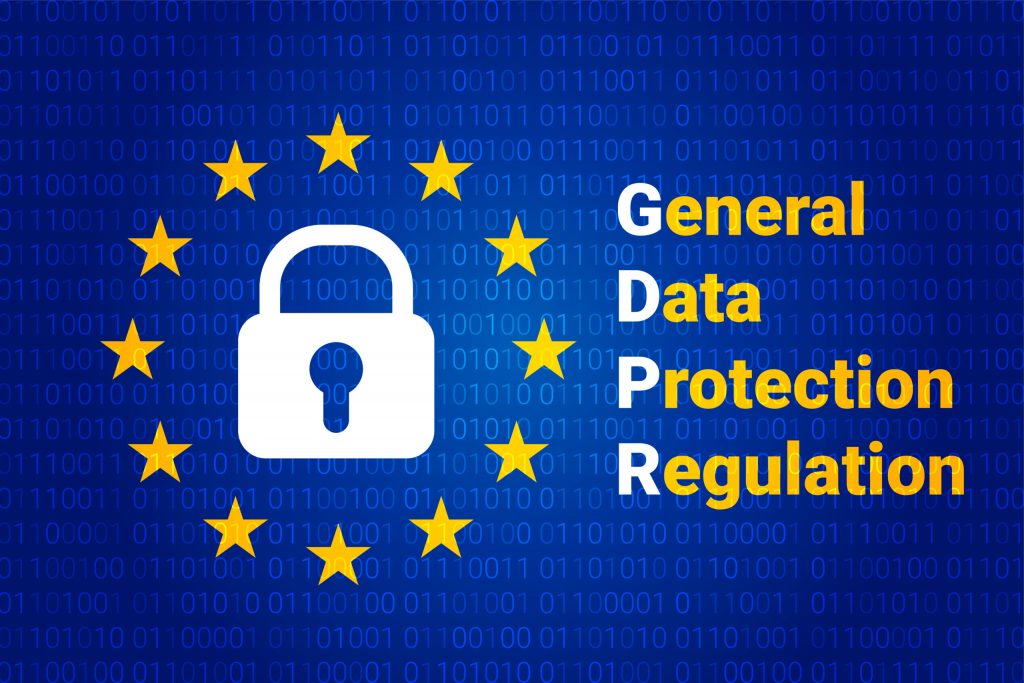
Overall, the General Data Protection Regulation is a lengthy law containing 11 chapters and 99 Articles. (The complete list of GDPR is available on the official website of the EU.)
However, as a mobile app owner, you need to understand the following principles of the GDPR.
- Customer’s Consent: The businesses need permission from the customer to collect data. Moreover, there must be a provision for customers to accept, reject and withdraw the permission.
- Right to Access: The customer may know what information is being collected by the businesses and how it is used. Also, the customer can even demand a digital copy of their data from the business if the need arises.
- Right to be Informed: Customers must be informed each time the company requires data. Moreover, the customer can allow or reject the company’s request as per their preferences.
- Right to Object: If the need arises, the customer may object to the use of their data by a company.
- Protection and Privacy of Data: The company must collect only the data which is deemed necessary for the operations of its business. The list of required data must be documented and made available to the users beforehand.
- Data Protection Officers (DPO): Multinational Companies and large enterprises are required to hire DPOs to manage and secure the data of their customers.
- Right to be Forgotten: If the customer asks the company to delete all its data, the company is obliged to do it.
Is GDPR For You?
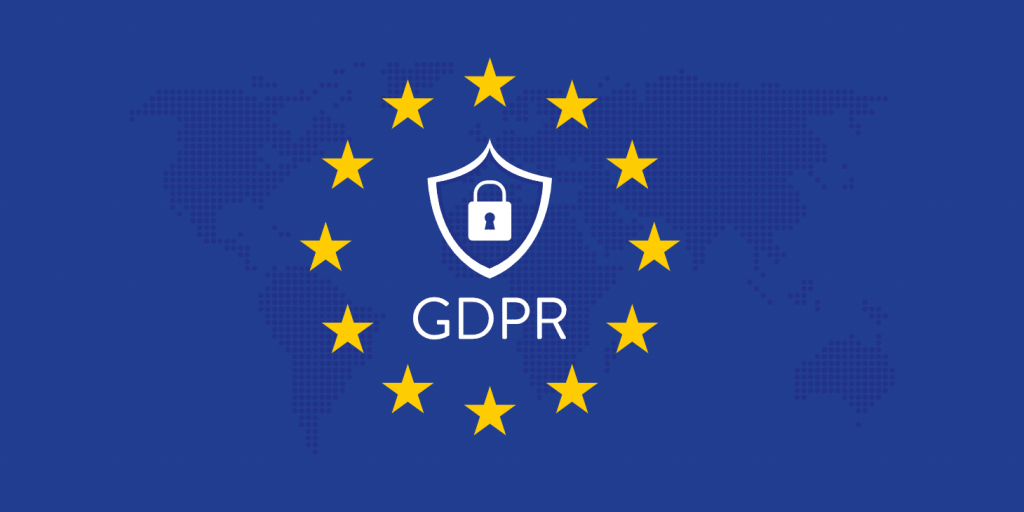
Almost all businesses and individuals will get affected by the EU’s GDPR!
The GDPR law obliges every business working in the EU (or serving the EU citizens from any corner of the world) to comply with its rules and regulations in the matters of cybersecurity.
Though GDPR provides many benefits to the customer and businesses, the consequences of not complying with the rule can be severe.
As per the European Union, if the company does not comply with the GDPR and attempts to play with customer’s data, it would be liable for a fine of more than €20 million. Moreover, the fine can even extend to 4% of the annual revenue of the company, if the company is found guilty of data breaching.
Some sources reveal that 8 out of every 10 businesses in America are taking steps to comply with GDPR. Furthermore, french companies and companies in Benelux are also making serious efforts to comply with GDPR.
Recently, a survey conducted by European Business Awards on behalf of RSM, shows that only 30% of the EU companies are yet to be GDPR compliant. Out of the total respondents of the survey, only 57% were confident of complying with GDPR while 13% were unsure.
Other statistics show that 74% of UK companies are not making any efforts to become GDPR compliant because of Brexit.
Since the GDPR came into effect while the UK was still a part of the EU, it was required to follow GDPR. However, today, when the UK is no longer a participant of the EU, the companies willing to do cross-border business in the European countries must be GDPR compliant.
Many businesses fret over the consequences of complying with GDPR. In truth, GDPR compliance will help your business become more secure, transparent, and accountable.
Let’s check some of the amazing business benefits of complying with GDPR!
5 Business Benefits of Making Your App GDPR Compliant
1. Improve Your Cybersecurity

Data breaches cause a lot of strain on the company’s reputation, increase cybersecurity concerns, and can even result in monetary loss. Thus, enhancing the company’s cybersecurity efforts is deemed necessary.
The GDPR regulates your business to adopt effective security strategies, flawless administrative and technical strategies to protect the data of citizens.
These efforts will help your business to reduce chances of data thefts, take proper account of customers’ data and keep the hackers and spyware at bay.
2. Scale Audience Loyalty

Nowadays, with the growing cases of cybercrimes, customers are getting concerned about their data. When you ask for permission to collect users’ data, educate them about the usage of their data and give them the authority to either allow or reject your plea, it boosts customers’ trust towards your company.
In short, with GDPR compliance, as you make your business more transparent and accountable, your company wins the hearts of customers and demonstrates your commitment to the privacy and security of your customers.
3. Manage Data Eloquently

To become GDPR compliant, your foremost step must be to audit the already existing data. Auditing will allow you to know the data of the customers you hold, better organize it, erase unnecessary data, and make it globally accessible and indexed.
You can even spare costs of data storing and processing by removing unnecessary data from your system.
Overall, GDPR compliance will help you take control of your customer’s data and manage it efficiently to avoid future troubles.
4. Attempt to Increase Marketing Return On Investment

When your business complies with GDPR, you collect the data of your users through their consent and you try to manage this data efficiently by eliminating excessive data, organizing it, and storing it in accessible formats.
By implementing the above steps, you get a clear and concise database of leads genuinely interested in your business. Now, you can adopt a niche-specific marketing approach and cater to your audience accordingly. Furthermore, this marketing approach will help your business increase CTR and social shares and gradually get high leads!
5. Develop Credibility

By implementing GDPR, your business can gain credibility in the industry. How? Let’s see!
You might have heard about businesses taking efforts to develop eco-friendly, animal-friendly environments and more. So, why not make efforts to be a customer’s privacy-friendly business?
With GDPR, you can develop a culture in your business to respect and protect your customer’s privacy. This will help you earn credibility among your customers and stay head and shoulders ahead of your competitors.
Now as we know the importance and the benefits of GDPR compliance, let’s go ahead and check out the steps to make your app GDPR compliant!
How to Make Your App GDPR Compliant?
1. Customer’s Consent is Essential

As mentioned earlier, GDPR attempts to bring more transparency in the working of your business.
To do so, one of the first steps you must take is to always ask for customers’ consent before accessing their data. Your business might need customers’ details such as name, email, phone number, credit/debit card details for invoicing, and many more. While asking for customers’ consent, you must educate them about the usage of their data. This way your customer will be well-informed and make sound decisions that can prove to be a boon for your business!
Once you get the data, it’s your responsibility to ensure that the data is secured and protected. Also, you must give the customer a chance to either accept or reject your plea!
2. Collect Only Necessary Data
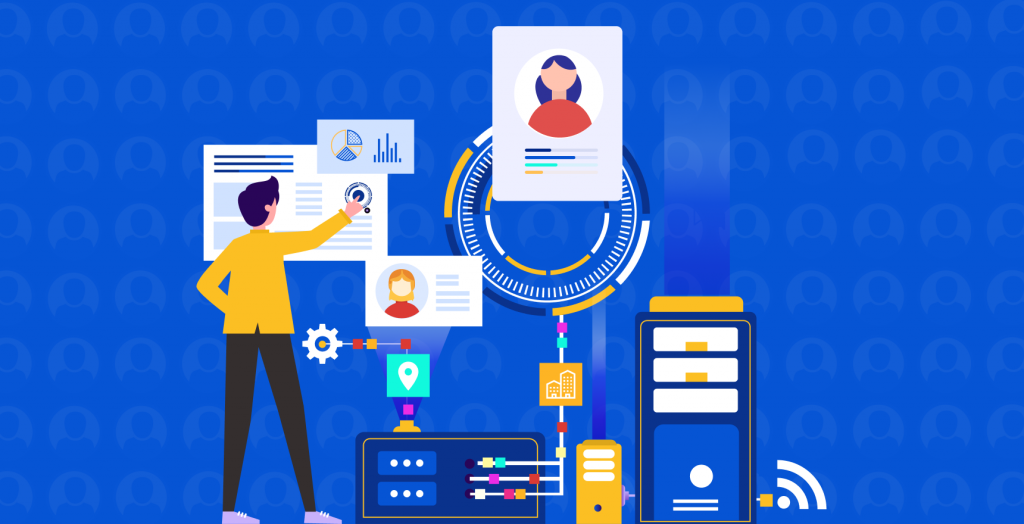
No doubt, businesses need to collect a diverse variety of customer data. However, many times unknowingly you might collect irrelevant data. This irrelevant data can crowd your storage space and create difficulty while organizing it. Thus, before asking for customer data, you must justify the relevance of the same.
For instance: If you’re a cloud kitchen business, a customer’s GPS can give you insights into the real-time location to speed up your delivery process. Thus, it can be relevant and important data. However, there’s no need for a customer’s GPS location after the completion of delivery. In this case, you can either ask your users to share their GPS location only while using your app or not share the location at all.
Moreover, if you use third-party services to collect and preserve your customer’s data, make sure they’re GDPR compliant, or else your business will get in trouble. You must also sign a Data Protection Agreement (DPA) with your data processors as it’s a prerequisite to making your app GDPR compliant.
3. Encrypt The Data (To Prevent Misuse)

Once you’ve collected your customer’s data, it’s crucial to preserve it and protect it from hackers, spyware, or other internet crimes. Data encryption is one of the best ways to protect your customer’s data with the most sophisticated encryption algorithms.
Data encryption offers some amazing benefits which will prevent any data breaches from occurring on your server.
4. Use Two-Factor Authentication Strategy
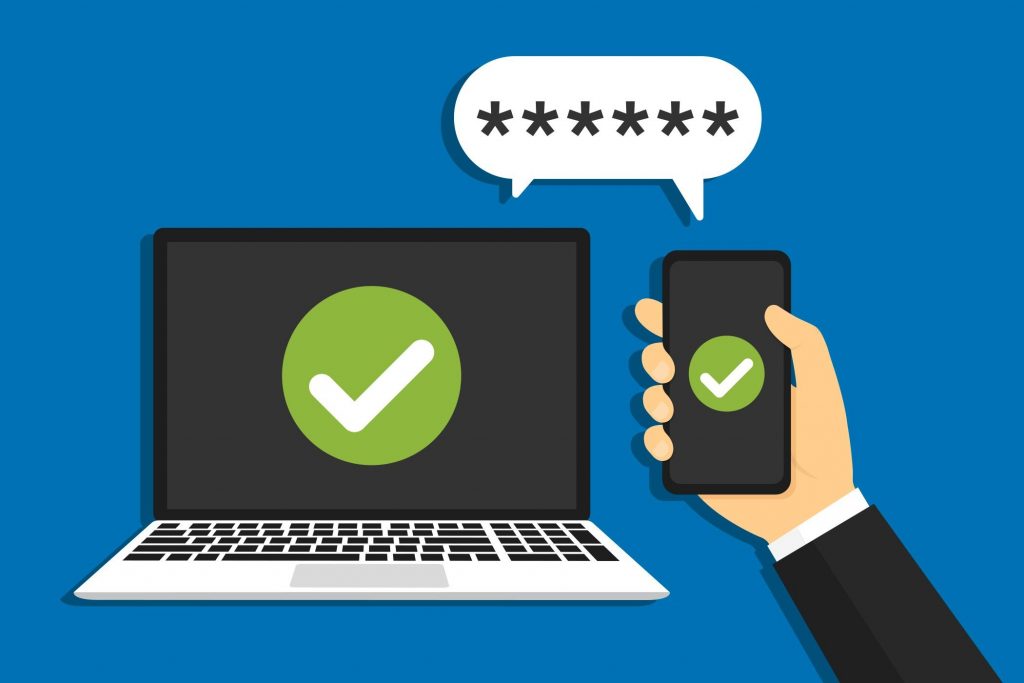
Two-Factor Authentication (2FA) is one of the best security procedures to prove one’s identity on your business portal. Most of the time, Single Factor Authentication procedures (that involve a single password, login credential, and more) are proved to be ineffective as the hackers can access the data from social media or through illegal means.
On the other hand, 2FA involves an alternate or a combination process for customer identification. It can be as security tokens (a system for authenticating a user’s identity electronically through the existing personal information) or biometric factors such as fingerprints and face locks.
5. Scrutinize the Way You Handle User’s Data

Creating a balanced procedure for handling the users’ data is of utmost importance to avoid the violation of GDPR.
To do so, you can determine the different servers where you store data, analyze and organize them while clearing out the clutter and try to document your steps. This documentation can be useful to prove your GDPR efforts in the future, during investigations.
6. Hire a Data Protection Officer (DPO)
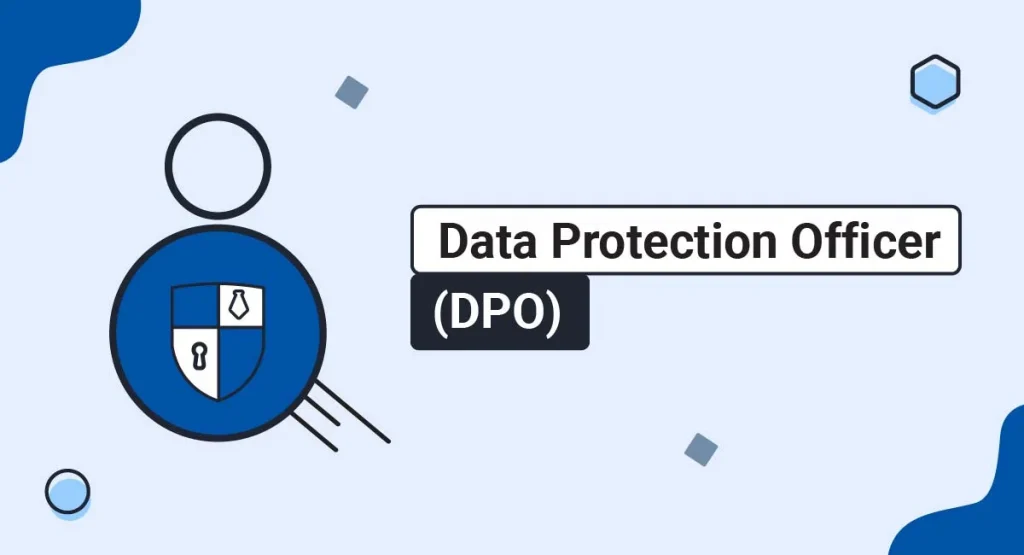
If you’re a public authority, large-scale business, or your activities involve the processing of data on a large scale, you must consider appointing a DPO to make your business a GDPR complaint.
The DPO is responsible for ensuring that the organization processes the data of its customers as per the rules and regulations of GDPR. In times of investigation, the DPO can be the voice of your organization and report about your GDPR efforts to the investigators.
7. Allow Users to Delete Accounts

As per the Right to be forgotten, the customers can anytime ask the business to delete all of their previous data.
Also, the business must educate its users about the process of requesting the deletion of all data and further inform them once everything is deleted. If you fail to do so, your business can face serious legal offenses for violating a rule of GDPR.
8. Educate Users About the Usage of Data

GDPR obliges companies to educate their users about what data they want to collect, how they will use that data, and how they will protect customers’ data. Mostly, the privacy policies of companies contain all this information. Thus, businesses must encourage their users to read the privacy policy, make sure it is easy to understand, updated, and inclusive.
Moreover, you must also inform the users if any data breach occurs within 72 hours.
That’s all about GDPR!
If you’re interested in creating a GDPR compliant app from scratch or if you want to turn your existing app into a GDPR compliant, reach out to us NOW!
We, at Eiosys, with rich experience and a team of professional developers, offer customized software development services to companies around the world.


